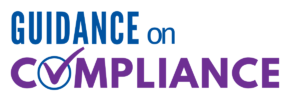Nursing Facilities (NFs) in Pennsylvania are in for a change effective July 1, 2021. Section GG coding is required for the Omnibus Budget Reconciliation Act (OBRA) assessments.
If your facility is not in Pennsylvania, don’t stop reading now. Some other states have already made the change to require Section GG coding for OBRA assessments. States have the option to require the completion of specific sections of the MDS since October 1, 2020. LW Consulting Inc (LWCI) believes the rest of the states will most likely follow suit soon.
The coding of Section GG, which relates to the functional abilities and goals of the resident, is here to stay. Coding of Section GG is not new and requirements for coding Section GG have been in place since 2016 to support the Quality Reporting Program (QRP). The change, effective October 1, 2019, with the advent of Section GG coding for the Medicare Part A Patient-Driven Payment Model (PDPM), is that Section GG impacts reimbursement for Medicare Part A. The quality of the coding is now important because if you do not code properly, it can impact future payment. The Case Mix Index, important for Medicaid reimbursement in some states, could also be impacted by Section GG coding.
Currently, NFs perform regularly scheduled nursing assessments for the long-term residents who reside in their communities, which are called OBRA Assessments. These Minimum Data Set (MDS) are conducted Quarterly, Annually, and when Significant Change assessments are required. Historically the Activities of Daily Living (ADL) component for OBRA assessments has been captured in Section G of the MDS. Section G focuses on the four late loss ADLs which include eating, bed mobility, transfers, and toileting. In Pennsylvania, even though there is a requirement to complete the Section GG information effective July 1, 2021, the Section G coding is still going to be used. Section GG coding is being required for data collection purposes only at this time; however, it is still required.
What Is the Big Deal With Doing Section GG for OBRA Assessments?
There are several things that a NF must keep in mind in order to collect Section GG data to code the OBRA assessment accurately.
- The scheduling of the Section GG assessment period for the OBRA assessments is the Assessment Reference Date (ARD) and the two days preceding. This mirrors the Interim Payment Assessment Section GG scheduling requirements for Medicare Part A, and not the 5-Day Admission requirements. The nurses and therapists will need to remember to complete the Section GG assessments within this timeframe to ensure accurate coding on the MDS.
- For long-term residents, the ADL information that has typically been captured for Section G is completed by the Certified Nursing Assistants (CNA) and not primarily by the licensed nursing staff. Each NF should assess the need to provide training to the nursing staff who typically support the long-term residents as they may not be as familiar with the Section GG scoring criteria. The tasks in Section GG are more specific than the four general tasks in Section G, and the functional mobility coding definitions are actually scored in reverse order from Section G scoring. The NF might have to perform training and have systems to monitor for accurate coding of Section GG for OBRA assessments.
- The Section GG coding required for Medicare Part A reimbursement includes only a limited number of tasks for physical therapy (PT) and occupational therapy (OT) and even fewer for the nursing component. For OBRA Assessments, all 24 of the functional tasks are to be coded. The detailed descriptions are critical and will require increased focus on documentation and coding for tasks, such as bathing, dressing, stairs, car transfers, and other tasks that might need to be assessed by therapy. Increased communication and coordination of the task assessments will be critical in supporting the accuracy of the MDS submission. The Resident Assessment Instrument (RAI) Manual serves as a resource to the Interdisciplinary (IDT) Team and outlines the definitions and the requirements to code the resident’s usual performance. The definitions and reporting noted in the RAI Manual are the same as for coding Section GG under Medicare Part A.
Are There Any Other MDS Changes Occurring July 1, 2021 Relating to OBRA Assessments?
There are some additional changes, in addition to coding Section GG, that goes into effect for OBRA assessments July 1, 2021. These three additional MDS sections will be required:
- I0020 (1-13), including I0020B, indicating the resident’s primary medical condition category
- J2100 recent surgery requiring active SNF care
- I2300 through J5000 surgical procedures
The definition of the primary medical condition category should indicate the primary reason the resident is currently in the NF. The ICD10 code in I0020B should not be an acute diagnosis. Sequelae and other such codes should be used instead. The primary diagnosis referenced should be the primary diagnosis at the time of the assessment is conducted and this may not be the same as the reason for admission.

